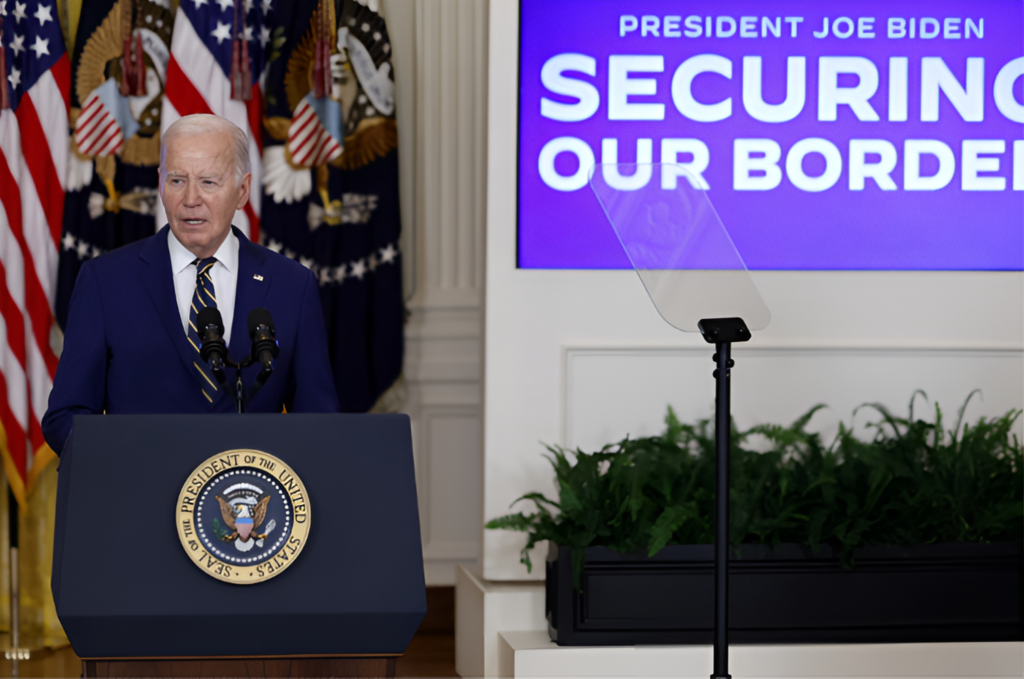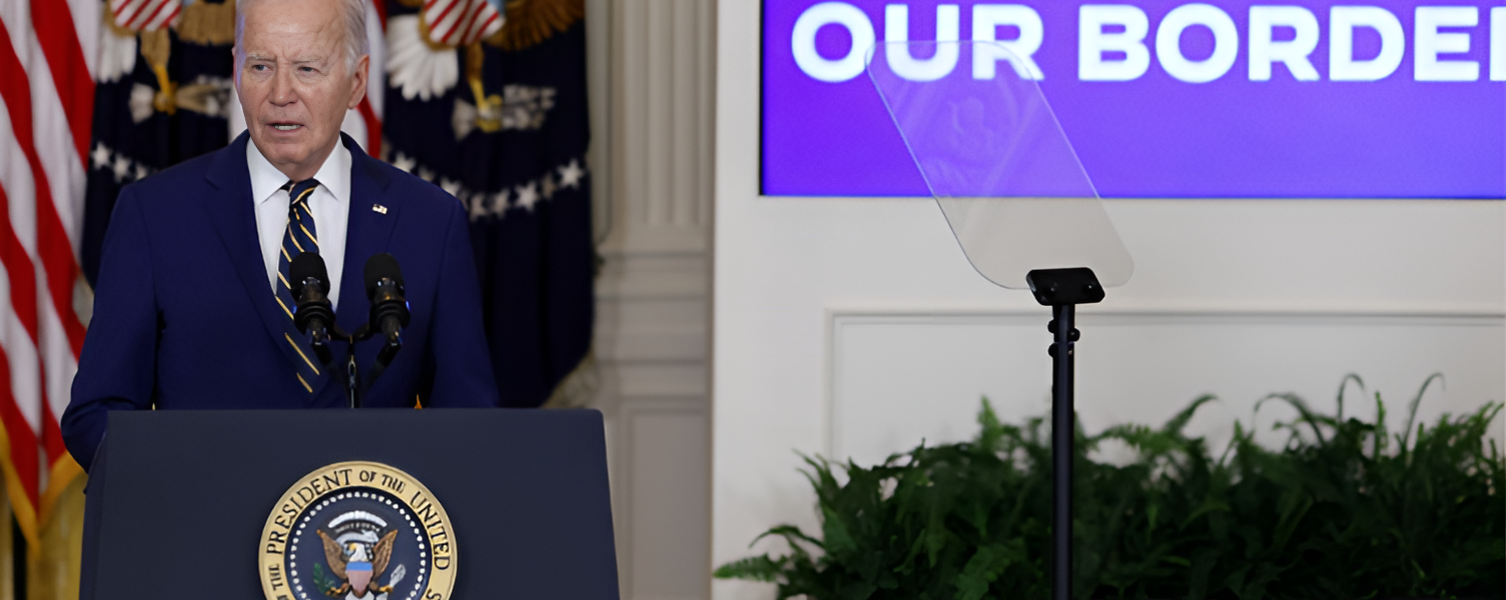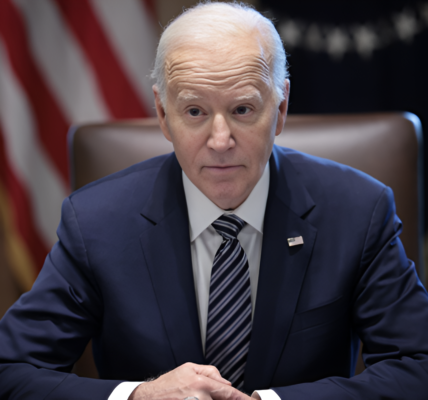Biden’s Immigration Policy Shift Reflects a More Trump Like Approach Amid Political Pressure

When President Joe Biden first took office, his administration promised a stark departure from the hardline policies of the Trump era, particularly on immigration. His rhetoric suggested a more humane approach, aiming to roll back some of Donald Trump’s controversial measures. But as Biden faces mounting political pressure and a steadily worsening polling position, his administration is moving toward a more restrictive stance on immigration that mirrors some of Trump’s toughest policies.
The most recent move in this shift is Biden’s decision to sign the most restrictive immigration order of his presidency, setting the stage for a near-total closure of the U.S.-Mexico border. The policy stipulates that the southern border will remain closed unless illegal crossings fall below 1,500 per day for a sustained period — a measure that takes effect immediately as the daily crossings have already surpassed the threshold of 2,500.
This drastic measure recalls Trump’s 2018 move to suspend asylum rights, a policy that was blocked in court but emblematic of Trump’s tough approach to immigration. Biden’s pivot underscores his administration’s need to recalibrate in response to political pressure, particularly from Republicans like Trump, who continues to hold sway over key voter concerns.
Even as Biden’s approval rating dips, with voters increasingly viewing Trump as more trustworthy on issues like immigration and the economy, the White House has been reluctant to reverse certain Trump-era policies, especially the heavy tariffs on China. Despite long internal debates about trade, Biden has been reluctant to challenge Trump’s tariffs, fearful of giving him an advantage in the public eye. When a group of Senate Democrats recently pressured Biden to raise tariffs on China, Biden responded by announcing targeted tariff increases on electric vehicles, semiconductors, and steel — a move that still keeps the trade war with China alive and well.
This political calculation extends to Biden’s handling of U.S. manufacturing. When Japan’s Nippon Steel announced a $14 billion acquisition of U.S. Steel in December, Biden initially missed the opportunity to tout his successful infrastructure and inflation reduction policies. Instead, he opposed the deal, aligning himself with Trump’s anti-foreign ownership rhetoric to avoid giving his political adversaries an opening.
Biden’s actions are largely driven by his vulnerabilities on two key issues: the economy and immigration. As polling shows, immigration is a critical concern for many voters, with some recent surveys indicating a sharp 27-point gap in trust between Trump and Biden on border security. Biden’s struggle to maintain his political footing in key battleground states such as Michigan, Pennsylvania, and Wisconsin is forcing him to adopt policies that would have seemed out of place when he took office just a few years ago.
While the Biden administration insists that its approach to immigration differs from Trump’s — emphasizing a commitment to fairness and humanitarian concerns — many critics see little distinction. Rep. Pramila Jayapal (D-Wash.) of the Congressional Progressive Caucus recently called for more clarity on the differences between Biden and Trump’s immigration policies, arguing that the party should be offering a sharper contrast on this issue.
The contrast may become clearer as Trump’s political presence expands beyond the courtroom. Already, he is promising even more radical shifts on immigration and trade should he regain the presidency. If Biden’s approach helps him secure critical swing states like Michigan, Pennsylvania, and Wisconsin — or defends his position in Arizona, where an immigration-related ballot measure could dominate the 2024 campaign — his critics within the party may ultimately forgive him for pivoting toward some of Trump’s policies.
In the high-stakes game of American politics, a pragmatic shift toward policies that resemble those of his predecessor could be exactly what Biden needs to solidify his standing with voters in crucial swing states, even if it means borrowing from Trump’s playbook





